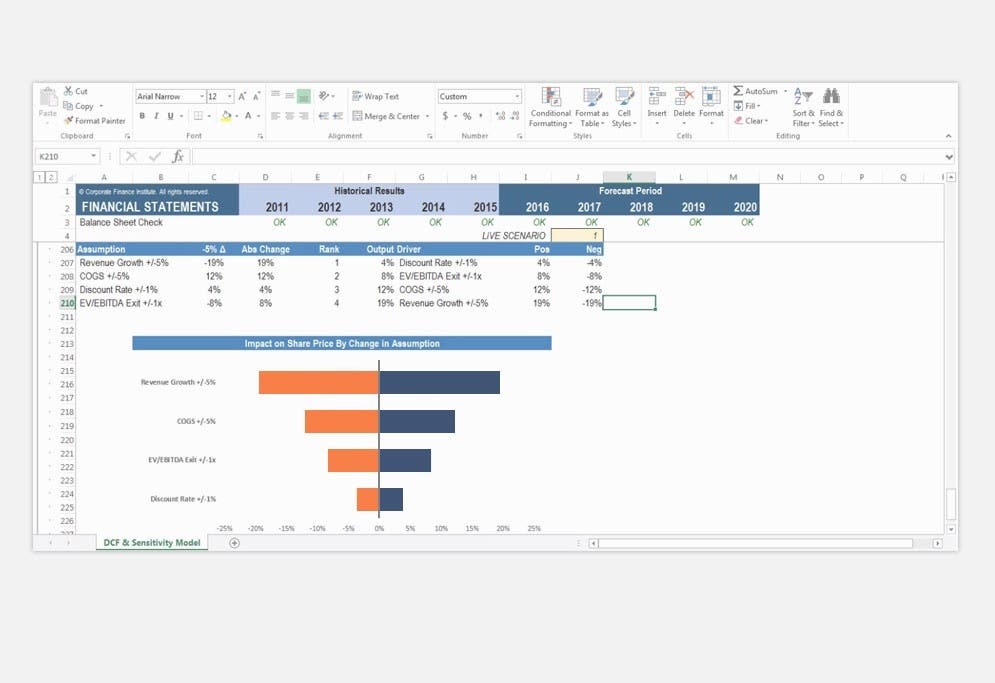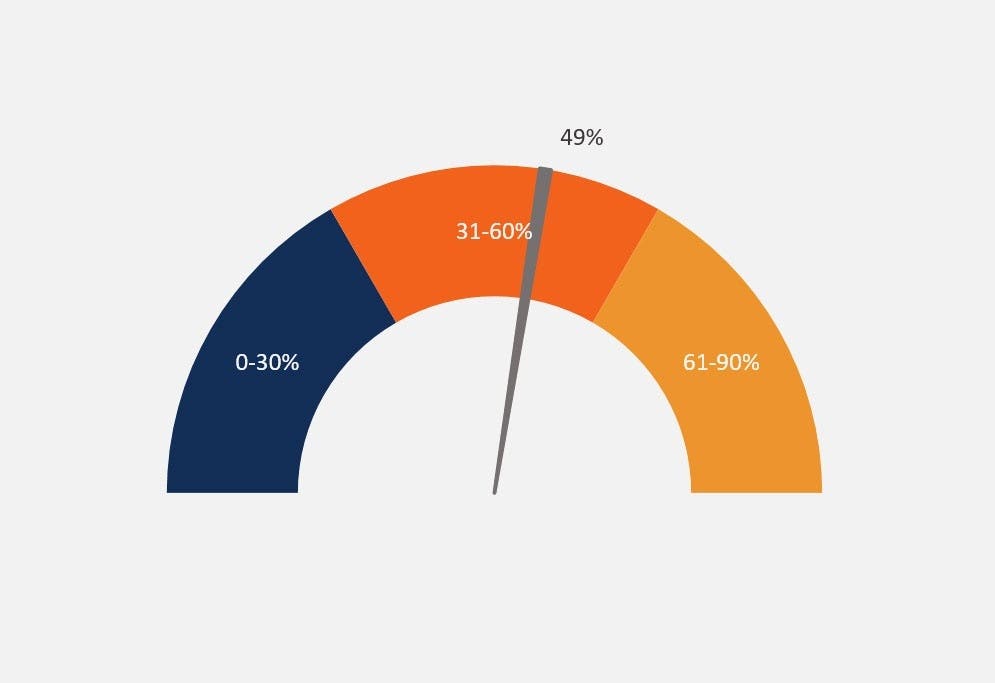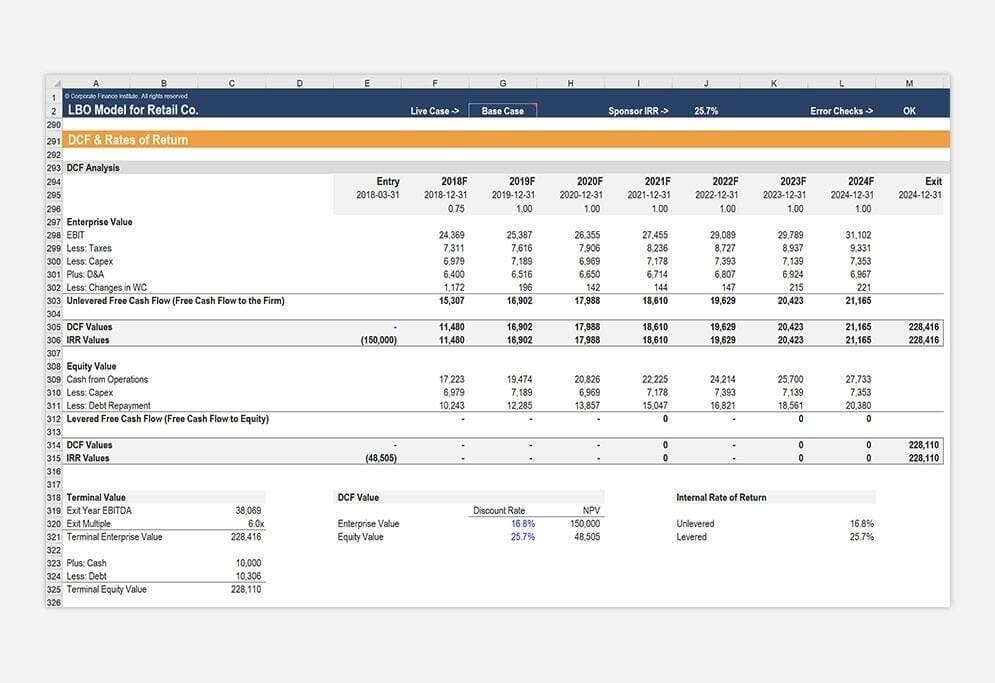- What is a Debt Capital Markets Banker?
- The Role of a Debt Capital Markets Banker
- How are roles in DCM organized?
- How do DCM Bankers Make Money for the Investment Bank?
- What Makes Someone Successful as a DCM Banker?
- Typical Job Duties as a DCM Banker
- Compensation Factors and Salary Expectations in Debt Capital Markets
- Job Qualifications for DCM Bankers
Debt Capital Markets (DCM) Banker Career Profile
Discover what it takes to embark on a career path of a DCM banker
Over 1.8 million professionals use CFI to learn accounting, financial analysis, modeling and more. Start with a free account to explore 20+ always-free courses and hundreds of finance templates and cheat sheets.
What is a Debt Capital Markets Banker?
A DCM banker works in an investment bank on the sell-side and is the product expert that advises borrowers and potential borrowers on the best way to raise new debt and manage their outstanding debt.

In most cases, an investment banker would be the first to identify the opportunity for their client to borrow and would then call in someone who specializes in fixed income, the DCM banker, to help close the deal with the client and earn fees for the bank.
Since the DCM banker must be an expert in fixed income origination, most Wall Street banks operate their DCM departments as joint venture (JV) between the fixed income capital markets and investment banking divisions (IBD).
The Role of a Debt Capital Markets Banker
Investment banks employ DCM teams that are responsible for the origination, structuring, execution, and syndication of various debt-related products.
DCM bankers are specialists brought in by the IBD coverage banker to help assist with clients on three key factors:
- Assessing the lenders’ needs
- Assessing the borrowers’ needs
- Assessing the interest rate environment in order to make a deal work for both parties
On the investors’ side, DCM bankers must gauge several factors, including:
- Overall investor appetite to fixed income markets and exposure to certain borrowers/industries;
- The time to maturity they are looking for;
- The risk tolerance and investment mandate of the investor; and
- The investor’s required return to buy that bond.
On the other side of the deal, the issuer’s needs must be assessed, including:
- The regulatory requirements of the issuer, whether it is a corporation, a financial institution, or a government entity;
- The uses of the debt;
- The amount that the borrower needs;
- The ideal structure of the debt and how to hedge the borrower’s potential interest rate risk and FX risk;
- The borrower’s ability to weather insufficient demand from investors; and
- For existing bond issuers, are there opportunities to restructure or refinance for better terms to the borrower.
DCM bankers must also have their fingers on the pulse of the fixed income market. The overall macro environment is very important to consider in the pricing of debt deals since the market interest rate serves as a benchmark for debt instruments. Additionally, DCM bankers must be intimately aware of where credit spreads are, current deals that are being marketed and market flows.
How are roles in DCM organized?
MNPI and Chinese Walls
The first thing to understand about a DCM banker is that they have access to and deal with material non-public information. As such, DCM bankers are required to work in a separate area from their sales and trading colleagues on the fixed income trading floor. These areas tend to be enclosed in glass walls, so sometimes are affectionately referred to as a “glass bowl.”
There are also strict internal controls, called Chinese Walls, that govern the interactions between DCM bankers with private information and colleagues that should only have access to public information. These may take the form of email and chat restrictions, sometimes even restricting the use of cell phones so that all conversations are recorded on work phone lines to ensure that MNPI doesn’t get into the open.
Deal team
In terms of workflow, DCM bankers tend to be structured by industry group, closely aligned with industry coverage teams in the IBD group. This is done to ensure specialization and accountability. A coverage banker in the IBD team will call on the client together with a DCM banker when there is a potential fixed income deal to discuss.
They might also pull in specialists within the DCM team on derivatives in order to help mitigate the risks from a fixed income transaction.
Sometimes, when working on a potential first-time issuer, they may call on DCM colleagues in their Ratings Advisory group, who have previous experience working for a credit ratings company, like S&P or Moody’s, to help ascertain what a potential deal would be rated. There are people in DCM who have legal backgrounds, who are called in when there are potential restructuring opportunities to discuss.
Syndicate manager
There are also colleagues in DCM who straddle the Chinese Wall and handle the actual book running with the salespeople and traders to decide on the final pricing, deal size and timing to ensure a successful transaction for both the borrower and investors. These people are called debt syndicate managers. In most firms, syndicate managers are responsible for executing interest rate and exchange rate hedges, as well as some trading responsibilities to support debt transactions once they are freely trading in the secondary markets.
Frequent issuers and FIG
For issuers who commonly and regularly issue debt, such as financial institution group (FIG), governments and their agencies, as well as supranationals, DCM bankers are often tasked with managing relationships with the client contacts within the treasuries of these issuers. The IBD banker may take a back seat in these instances as these so-called “frequent issuers” need to have constant and very intensive coverage given their needs.
How do DCM Bankers Make Money for the Investment Bank?
DCM bankers make fees, called origination fees, for successful bond transactions. These range for less than five basis points for a high-quality frequent issuer, like the World Bank, to one or two percent for a high-yield issuer who needs to renegotiate previously agreed terms on an existing bond restructure.
In addition to origination fees paid by the issuer to bring a bond deal, there are other potential very lucrative revenue opportunities. For example, interest rate swaps, basis swaps, and FX swaps are some of the derivatives that DCM bankers and syndicate managers employ in bond transactions that help increase the fees from a transaction.
There are also rare opportunities that DCM bankers may spot for existing bond issuers to buy back their existing debt from the market to take advantage of lower bond prices if the borrower has excess cash.
Regardless of how the revenues are earned, the fees are split according to the terms of the JV between IBD and DCM, most commonly 50/50.
League table
The more bond transactions that an investment bank is involved in, the higher they rank in league tables, which ranks banks by the amount of business they do in certain markets. A higher ranking on the debt issuance league table indicates to potential clients the prowess of an investment bank’s DCM team, which leads to more business and even higher league table rankings.
What Makes Someone Successful as a DCM Banker?
As is the case with most jobs working in an investment bank on the sell-side, success is determined by how much revenue you bring in to the firm. Unsurprisingly, this means that roles within DCM tend to be pressure-packed and intense.
Market expertise
Firstly, an individual needs to be an expert in fixed income markets and the sector or industry that they work in. While much of the learning can be obtained from schooling, books, and courses like CFI’s Capital Markets & Securities Analyst (CMSA)® program, most DCM bankers also learn by doing. Hence, new analysts are paired with more experienced bankers to learn the tricks of the trade on the desk. They must have their fingers on the pulse of the market to understand when and how to present a deal.
Aggression and persistence
Secondly, they must be aggressive and persistent. There is rarely an opportunity that only one investment bank can show to a prospective issuer. The winner, in most cases, is the DCM banker who can show the idea first to the issuer, or show the most innovative idea for the issuer to save on their borrowing costs. And since not every idea will meet with the issuer’s approval, a successful DCM banker must be tenacious, especially for frequent issuers and financial institutions, who are shown dozens of prospective ideas a day.
DCM bankers also need to be experts at developing relationships. Whether it be based on experience, market knowledge or simply being personable, successful DCM bankers need to “click” with their client so that the client will “pick up the call” from the banker in the first place. DCM bankers will also often need to travel to visit borrowers with the IBD bankers and investors with salespeople in order to maintain those relationships.
Typical Job Duties as a DCM Banker
On a typical day, DCM bankers start their day early, but not necessarily as early as sales and trading. The first thing to do is to review overnight news and trades, then begin to call clients to update them on the market, funding levels and other deals.
DCM colleagues will also “soft-sound” their sales and trading colleagues to gauge investor interest for their borrowers. Often, they will arrange for issuers to visit investors around the world to roadshow prospective offerings or to update the latest financials.
If they have a live deal on the go, it is filled with intense discussions with other bookrunners, investors and sales and traders, which often stretch very late into the night to coordinate with other time zones. DCM bankers also have stressful and difficult negotiations with borrowers, oftentimes dealing with other cutthroat bookrunners and competitors trying to undermine them with the client.
When there are no live deals on the go, DCM bankers may get a bit of downtime. So overall work/life balance is not easy for DCM bankers as the hours demanded tend to fluctuate.
Compensation Factors and Salary Expectations in Debt Capital Markets
With this extremely intense work, it is perhaps no surprise that compensation for debt capital markets bankers is very lucrative. The compensation is based on performance, so DCM bankers have a “eat what you kill” mindset.
Compensation is broken down into a base salary and year-end bonus. As is the case with most jobs in the financial industry, experience is typically associated with higher pay. Year-end bonuses can be many multiples of the annual base pay.
Competition between banks for good DCM bankers is also quite high, with bankers being actively poached and moving between firms a common sight.
Job Qualifications for DCM Bankers
Roles in DCM bankers are highly sought-after by those who have the right skills. To become a debt capital markets banker, there are specific licensing courses and regulatory exams one must pass. For example, in the United States, you need to pass the Series 7 and Series 63 exams.
New DCM associates are frequently recruited from highly sought-after undergraduate programs across the globe. If a new analyst (undergraduate degree) or associate (graduate degree) performs well during the year, they can expect to be promoted and continue their career path toward vice president, executive director, and ultimately, managing director.
DCM is very much a “learning through doing” type of career, and those who do well can achieve incredible successes. Career mobility is often determined by one’s ability to generate fees or based on the strength of relationship with borrowers/investors.
Create a free account to unlock this Template
Access and download collection of free Templates to help power your productivity and performance.
Already have an account? Log in
Supercharge your skills with Premium Templates
Take your learning and productivity to the next level with our Premium Templates.
Upgrading to a paid membership gives you access to our extensive collection of plug-and-play Templates designed to power your performance—as well as CFI's full course catalog and accredited Certification Programs.
Already have a Self-Study or Full-Immersion membership? Log in
Access Exclusive Templates
Gain unlimited access to more than 250 productivity Templates, CFI's full course catalog and accredited Certification Programs, hundreds of resources, expert reviews and support, the chance to work with real-world finance and research tools, and more.
Already have a Full-Immersion membership? Log in





